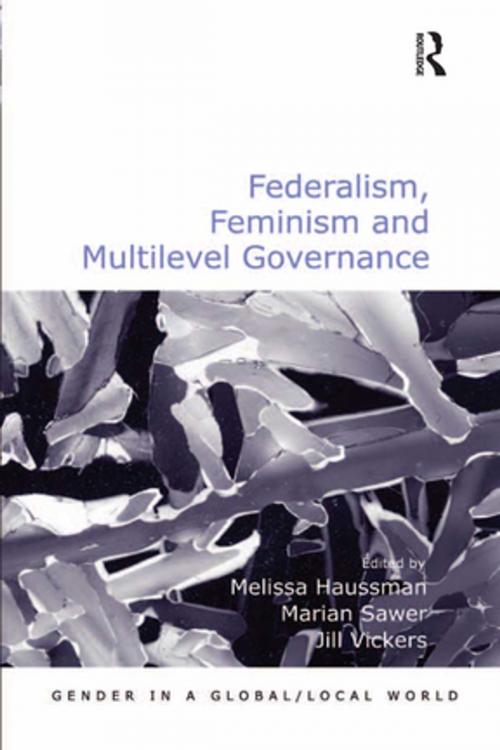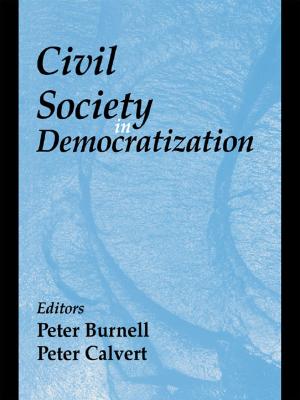Federalism, Feminism and Multilevel Governance
Nonfiction, Social & Cultural Studies, Political Science| Author: | Marian Sawer | ISBN: | 9781317136088 |
| Publisher: | Taylor and Francis | Publication: | April 15, 2016 |
| Imprint: | Routledge | Language: | English |
| Author: | Marian Sawer |
| ISBN: | 9781317136088 |
| Publisher: | Taylor and Francis |
| Publication: | April 15, 2016 |
| Imprint: | Routledge |
| Language: | English |
Until recently, few gender scholars took notice of the impact of state architecture on women's representation, political opportunities, and policy achievements. Likewise scholars of federalism, devolution and multilevel governance have largely ignored their gender impact. For the first time, this book explores how women's politics is affected by and affects federalism, whether in Australia, Canada, India, Mexico, Nigeria, Russia or the US. Equally, it assesses the gender implications of devolution and multilevel governance in the European Union, including case studies of the UK and Germany. Globally, multilevel governance is providing new arenas for women's politics. For example, CEDAW (the UN Convention for the Elimination of All Forms of Discrimination against Women) has led most governments to adopt gender-equality norms while other UN instruments have supported Aboriginal self-government. Gender scholars will find especially valuable what is revealed about the impact of political architecture on a broad range of policy issues, including gay marriage, reproductive rights and childcare. Federalism scholars will benefit from the book's wide range of cases, comparative themes and combination of gender and federalism perspectives. Written by leading experts, this book fills an important gap in both literatures.
Until recently, few gender scholars took notice of the impact of state architecture on women's representation, political opportunities, and policy achievements. Likewise scholars of federalism, devolution and multilevel governance have largely ignored their gender impact. For the first time, this book explores how women's politics is affected by and affects federalism, whether in Australia, Canada, India, Mexico, Nigeria, Russia or the US. Equally, it assesses the gender implications of devolution and multilevel governance in the European Union, including case studies of the UK and Germany. Globally, multilevel governance is providing new arenas for women's politics. For example, CEDAW (the UN Convention for the Elimination of All Forms of Discrimination against Women) has led most governments to adopt gender-equality norms while other UN instruments have supported Aboriginal self-government. Gender scholars will find especially valuable what is revealed about the impact of political architecture on a broad range of policy issues, including gay marriage, reproductive rights and childcare. Federalism scholars will benefit from the book's wide range of cases, comparative themes and combination of gender and federalism perspectives. Written by leading experts, this book fills an important gap in both literatures.















